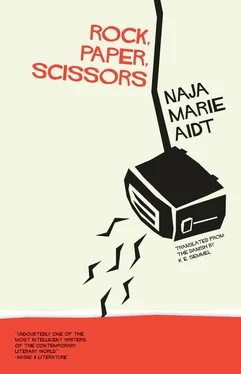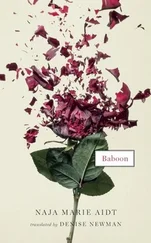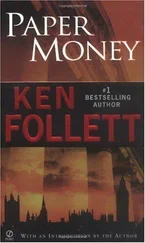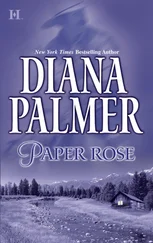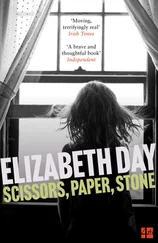“You truly belong to the old world, Jules,” Patricia laughs.
“You can say that again,” Tina says, draining the last drop of her coffee. “What are you all talking about?” She’s an economist with a full-time job; she earns a lot of money, much more than Jules. Jules was fired because he was too selective. Too passionate, but his “passion” wasn’t the kind that brought the publisher a lot of revenue — he rejected nearly all of the manuscripts that fell into his hands. It was said that he worked against his own self-interest. But, as he slumps across the table now, he appears gentle and nearly transparent. Patricia says something about poetry and images. Then she talks about a novel she read that made a lasting impression on her. It was both autobiographical and very moving. Jules shakes his head. “Not my thing.”
“But have you read it?”
“Certainly not. Nor will I ever. .”
He turns toward Thomas, his eyes swimming: “Tell us a funny story, Thomas. How’s it going at the store? Do you and Maloney get drinks after you close? Do you make good money?” Thomas begins loudly rattling off all sorts of stuff. He grins hysterically at things that aren’t especially funny. He gets to his feet to illustrate how Peter and Annie walk. He’s filled with an energy he can’t control, and now he mimics Annie’s voice. Patricia looks at him, aghast. Thomas is standing in the center of the room. Then, just as quickly as the mania had come over him, his bubble bursts; exhausted, he sinks into his chair. I’m myself again, he thinks, relieved. And then: Myself? Who ? Patricia continues to stare at him. Thomas figures that they’ve gotten past the literature portion of the evening amazingly fast, which means they’ll soon be talking about recipes. But in this he’s wrong. Because Patricia says: “Thomas’s father just died.” And Jules and Tina turn and gaze at him quizzically. “Oh, no,” Tina says, covering her mouth with her hand.
Later, Jules nevertheless returns to the subject of autobiographical literature. “People have got to stop their naval-gazing bullshit and write real stories. What the hell is wrong with fiction? The idea that it’s truer and more real to write about yourself is nothing but the unreflective extension of individualism and the childish self-centeredness of our stunted generation. We’ve let ourselves be stunted. There’s no will, rebellion, or idealism in us. No solidarity. And now, apparently, we feel the need to spew our self-absorbed, narcissistic, self-pity over literature as well. It’s enough to make you vomit!”
“What do you mean by ‘self-absorbed, narcissistic, self-pity’?” Tina asks, glancing at Thomas, who shrugs. But before they get an explanation from Jules, Patricia begins to speak. “Maybe fiction is old-fashioned, maybe the novel as a form isn’t especially interesting anymore. We see the same thing happening in the visual arts. The personal vision, the private story, the individual finds a greater truth, and so does the recipient—”
“The recipient ? Oh, SPARE ME! I’ve just answered your question! It’s not at all true, and those goddamn private stories belong in a fucking diary or on some tasteless reality TV show!”
“But Jules, at least listen to what she’s saying. .” Tina looks tired.
“Besides,” Jules continues, undaunted, “everything you’re saying was disproven long ago. I’m talking about the novel as a form of art. As a concept. The great novel. The autobiographical tendency shows that today’s ‘literati’ don’t dare trust fiction, don’t dare trust art as a creative power, they don’t understand it and so don’t bother with it. They just say it’s unusable because it’s not ‘true’! It’s too damn dull, narrow, and populistic! And completely spineless!”
“Autobiographical works can also be great literature. You’re the one who’s old school. Why this focus on the great story ? What kind of crap is that?” Patricia raises her voice. “How can you rule out the possibility that the novels you love include autobiographical elements? Of course they do! And those writers who say they’re writing autobiographical stories can be lying. No one knows that. But does it even matter? Anything that’s presented in an interesting way is valid. What matters is the form. The way the material is shaped. How it’s used. That’s what makes art! For example, the book I read,” Patricia says, pointing angrily at Jules, who immediately interrupts her: “Obviously novelists can draw on their life experiences, but to insist on it as if it were a fucking hallmark! No, you’re confusing things, believing it’s so fucking modern.” Swaying in his seat, Jules reaches for his glass. “You’re a lemming, Patricia!”
“C’mon, Jules. You can’t say that,” Tina says feebly. She lowers her head in shame and picks at her napkin. Patricia shakes her head obstinately and drains her glass. Thomas admonishes himself: You’ve got to say something. Your silence is painful.
“How can you teach literature to young people when you have that attitude?” he asks. “Do they put up with it? Don’t they just sit there staring at their electronic doodads and each other while you lecture?”
“Shit, I’m teaching them what’s worth knowing. The great classics of world literature, and by that I mean proper books, and it’s completely irrelevant when they were written. And luckily not all contemporary writers are shit. On the contrary, Patricia! This is just some kind of pathetic tendency that we’ll all have forgotten about in fifty years. The problem isn’t the autobiographical part. The problem is calling it literature, to put it ahead of fucking literature! That’s how stories are being reduced for God’s sake!” Shouting now, Jules gets to his feet.
“No, they don’t!” Patricia tries to talk over him. “Polyphonies arise. Multiple voices! It’s an investigation into what a narrator can do. A narrator isn’t necessarily one voice. This is about new ways of understanding identity. It’s also happening with visual art!”
“STORIES ARE BEING REDUCED!” Jules throws his arms in the air.
Tina shushes him. Then she addresses him sternly, as if to a dog: “Sit.” And Jules sits.
Patricia sighs. “But it is literature, Jules. You can’t deny that.”
Jules shakes his head, cursing. Thomas can still hear Jules’s and Patricia’s voices, their rising and falling; they sound more subdued now, but he can no longer make out what they’re saying. It’s just sound. He’s gliding through the darkened basement. He can feel the money against his belly. His heart hammers hard and irregularly, and on his way through the darkness he bumps into something. A body. A large, warm body blocking his way. And then, as if bellowing from some deep cave, a voice booms right in his ear: “Who’s there?” There’s a choking embrace. Flesh, damp skin, matted hair. He’s trapped by bones and flesh. He’s held in this embrace, this strong and living thing that won’t let him go. But is it alive? Or is it a zombie? He starts, frightened, and is yanked brutally from his seat of his own volition and tumbles to the floor. The others stare at him curiously. “What happened?” Patricia asks.
He shakes his head. “I just need to go to the bathroom.”
He splashes water on his face and washes his hands. He breathes deeply, tries to suck the air all the way to his diaphragm. But the presence of the overwhelming body hangs inescapably on him. There was nothing human about it, and yet: Who’s there? And what is it? What was it? He’s tipsy, but not drunk. Or is he? Did he fall asleep? Was he dreaming? He returns to the others, who’ve apparently not changed topics. Jules shouts: “Pass me a smoke, Thomas!” and impatiently extends his hand. “If they don’t want to learn anything, then they can just piss off!” He looks up, a wild expression in his eyes. Tina glances apologetically at Patricia, and Thomas lets Jules have a cigarette, though smoking is forbidden in the apartment. Tina glowers in dismay as the two men smoke, no doubt thinking about her daughter, the pure, unblemished body in the bedroom.
Читать дальше
